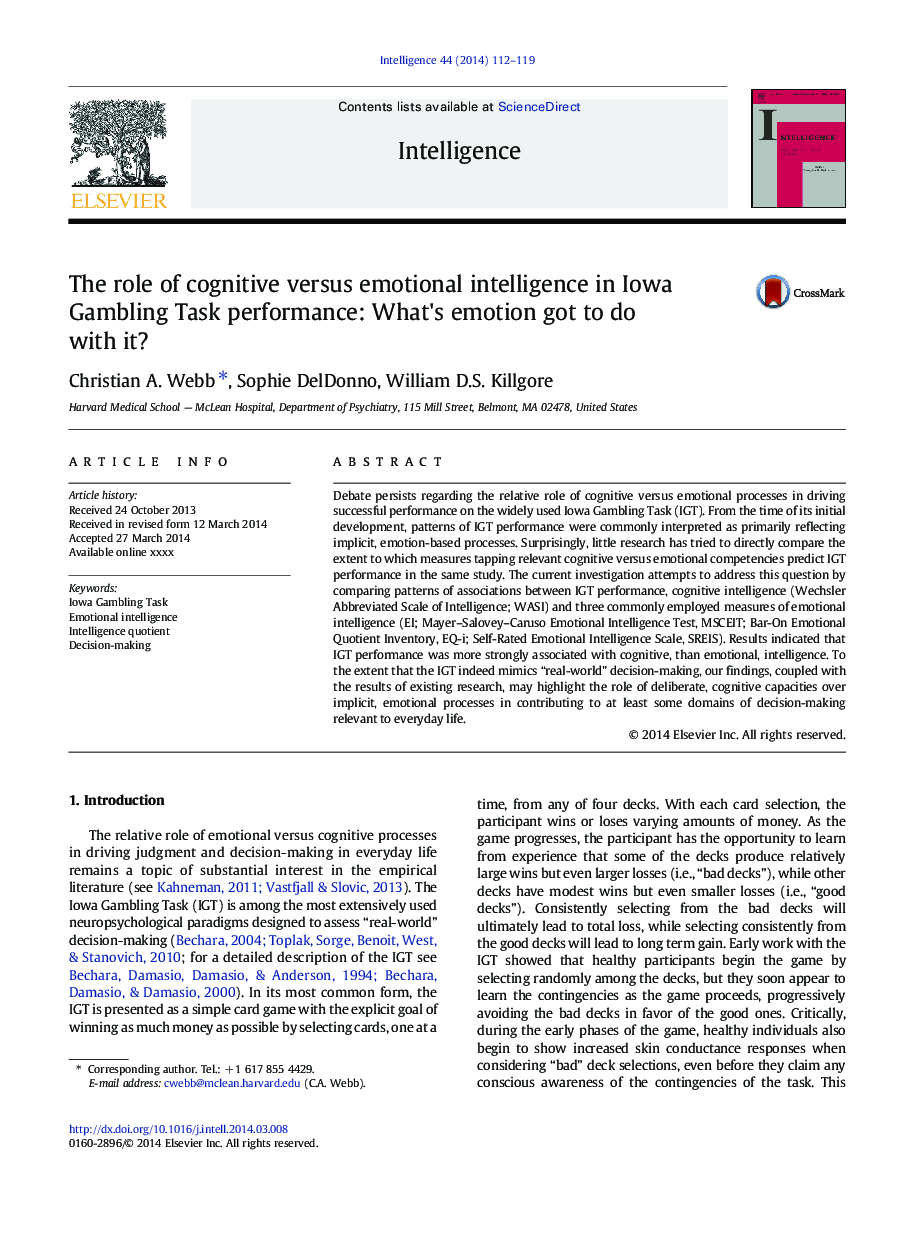| Article ID | Journal | Published Year | Pages | File Type |
|---|---|---|---|---|
| 7294581 | Intelligence | 2014 | 8 Pages |
Abstract
Debate persists regarding the relative role of cognitive versus emotional processes in driving successful performance on the widely used Iowa Gambling Task (IGT). From the time of its initial development, patterns of IGT performance were commonly interpreted as primarily reflecting implicit, emotion-based processes. Surprisingly, little research has tried to directly compare the extent to which measures tapping relevant cognitive versus emotional competencies predict IGT performance in the same study. The current investigation attempts to address this question by comparing patterns of associations between IGT performance, cognitive intelligence (Wechsler Abbreviated Scale of Intelligence; WASI) and three commonly employed measures of emotional intelligence (EI; Mayer-Salovey-Caruso Emotional Intelligence Test, MSCEIT; Bar-On Emotional Quotient Inventory, EQ-i; Self-Rated Emotional Intelligence Scale, SREIS). Results indicated that IGT performance was more strongly associated with cognitive, than emotional, intelligence. To the extent that the IGT indeed mimics “real-world” decision-making, our findings, coupled with the results of existing research, may highlight the role of deliberate, cognitive capacities over implicit, emotional processes in contributing to at least some domains of decision-making relevant to everyday life.
Related Topics
Social Sciences and Humanities
Psychology
Experimental and Cognitive Psychology
Authors
Christian A. Webb, Sophie DelDonno, William D.S. Killgore,
